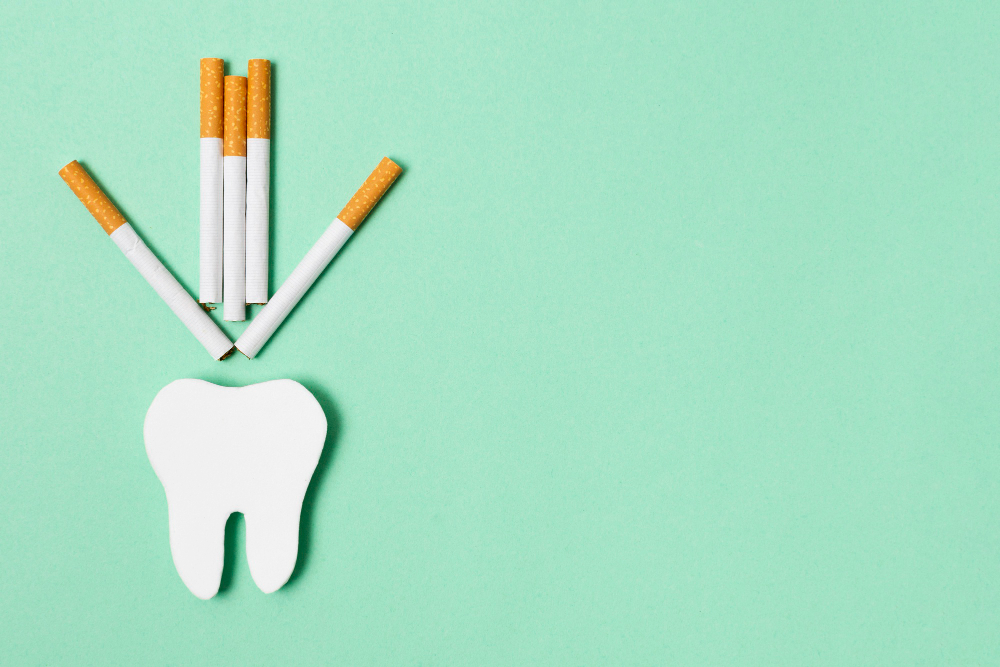
Smoking is well-known for its harmful effects on the lungs and heart, but its impact on oral health often gets overlooked. Your mouth is the first point of contact for cigarette smoke, which means your teeth, gums, and tongue are directly exposed to its damaging effects. Whether you’re a casual smoker or a long-time tobacco user, understanding how smoking affects your teeth might be the push you need to make a change.
1. Tooth Discoloration
One of the most noticeable effects of smoking is stained teeth. Nicotine and tar from tobacco stick to the enamel and leave behind yellow or brown stains that are hard to remove—even with regular brushing. Professional whitening treatments can help, but the stains often return quickly if you continue smoking.
2. Bad Breath (Halitosis)
Chronic bad breath is a common side effect of smoking. The chemicals in cigarettes not only leave a lingering smell but also dry out the mouth. A dry mouth allows bacteria to grow, which worsens the odor. No amount of gum or mouthwash can fully mask the smell caused by smoking.
3. Gum Disease
Smoking weakens your immune system, making it harder for your body to fight off infections—including gum disease. It reduces blood flow to the gums, which delays healing and increases the risk of gum inflammation (gingivitis) and more severe gum disease (periodontitis). Left untreated, this can lead to tooth loss.
4. Tooth Loss
Because smoking leads to advanced gum disease and slows healing, smokers are more likely to lose teeth compared to non-smokers. The bone and tissue that support your teeth can become severely damaged over time, resulting in loose or missing teeth.
5. Slower Healing After Dental Procedures
Smokers often face complications after dental procedures like tooth extractions, implants, or gum surgery. The chemicals in tobacco interfere with normal healing processes, which can lead to infections, implant failure, or poor recovery outcomes.
6. Increased Risk of Oral Cancer
Perhaps the most serious risk is the increased likelihood of developing oral cancer. Smoking (especially when combined with alcohol use) significantly raises your risk of cancers of the mouth, tongue, lips, and throat. Regular dental checkups are crucial for early detection.
7. Reduced Sense of Taste and Smell
Tobacco smoke can dull your senses, particularly taste and smell. Many smokers find that their ability to enjoy food and drink diminishes over time, but this can often improve after quitting.
Can the Damage Be Reversed?
The good news is: quitting smoking can dramatically improve your oral health. While some effects like deep staining or tooth loss can’t be reversed without dental treatment, quitting allows your gums to heal, reduces the risk of further damage, and improves your overall well-being.
Tips for Better Oral Health:
- Brush twice a day and floss daily
- Visit your dentist regularly for checkups and cleanings
- Consider professional whitening if stains are bothering you
- Use an antibacterial mouthwash
- If you're trying to quit smoking, speak with a healthcare provider for support